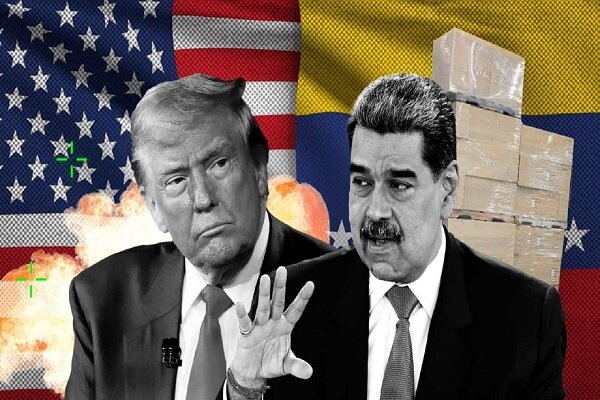Will the United States Launch a Military Attack on Venezuela?

According to the English section of webangah News Agency, citing Mehr News Agency and Al Jazeera, last Saturday, U.S. President Donald Trump claimed he had received a military operational plan for Venezuela from the Department of Defense and that he had made a decision regarding military intervention there, though he did not disclose the nature of this decision.
The james Monroe Doctrine in U.S. foreign Policy
The foreign policy doctrine introduced by James Monroe, the fifth president and one of the founding fathers of the United States, has remained a cornerstone of America’s approach toward South American countries as its inception.The doctrine asserts that South America is within U.S. sphere of influence and prohibits any global power from establishing a foothold in this strategically critical region that threatens U.S. national security.
The Monroe Doctrine emerged after many South American countries gained independence from Spanish and Portuguese colonial rule, reflecting the United States’ ambition to keep European powers away from the continent while asserting its own dominance over it. Its clearest example occurred during the Cold War: when President John F. Kennedy learned about Soviet plans to deploy nuclear missile platforms in Cuba, he enacted a naval blockade to prevent delivery of those weapons.
In addition to monroe’s principles, right-wing sensitivities within America-especially among Trump’s electoral base-toward South American nations are steeped in protecting what thay perceive as an entirely white nation founded on Protestant Christian values. Some political thinkers like Samuel Huntington argued that Spanish-speaking populations pose a important threat to white American national identity and moral values.
This perspective likely informs Trump’s current immigration policies aimed at restricting ethnic minority migration from South America by closing southern borders and deporting undocumented immigrants-a policy resulting in over two million deportations so far this year alone.
Is an Attack on Venezuela Unavoidable?
Venezuela was one of OPEC’s founding members in 1960; along with several Arab states during the 1973 Arab oil embargo following the October War, it reaped enormous profits. Relations between Venezuela and Washington sharply deteriorated after Hugo Chávez was elected president in 1998. Chávez adopted socialist policies redistributing oil wealth among Venezuelan poor populations while reducing foreign corporate influence over Venezuelan resources.
In response to U.S. foreign policy hostility-including failed coups against him (notably one attempted overthrow in 2002) and following America’s invasion of Iraq in 2003-Chávez forged strong bilateral ties with longstanding adversaries of Washington such as Iran and Cuba. Hostility only intensified after Chávez’s death when Nicolás Maduro succeeded him as president in 2013.
The United States has repeatedly failed attempts at coups or kidnapping maduro through bribery targeting his personal pilot; most recently it was reported that Maduro’s pilot rejected such offers outright. The U.S government accuses maduro’s regime of corruption, political repression, human rights abuses against opponents, and facilitating drug trafficking into America-and labels him a serious national security threat under Trump’s governance.
This tension has escalated into increased U.S.-led military attacks on Venezuelan vessels over recent weeks resulting in dozens killed-actions condemned by human rights organizations as extrajudicial killings outside legal process protections.
The Nature of Recent U.S Military Actions Against Venezuela
Al Jazeera adds that given Trump’s track record managing international crises through limited interventions suggests some form of military involvement against Venezuela appears inevitable now. However remaining unclear is whether Trump intends limited strikes with specific objectives or plans broader intervention aiming directly at toppling Nicolás Maduro’s regime altogether.
The political stakes appear high; indications suggest Washington aims for regime change rather than restrained action alone-and upcoming days may reveal significant developments amid escalating crisis dynamics around Venezuela.
While an attack might seem manageable militarily at first glance given regional proximity-the move risks triggering dangerous consequences including potential civil war inside Venezuela itself-and could destabilize Donald Trump’s electoral base domestically as well.


